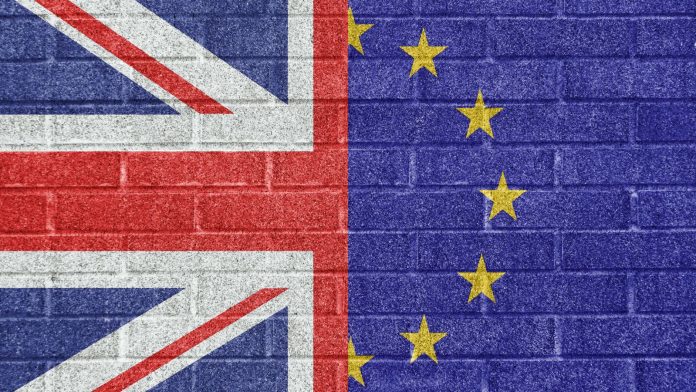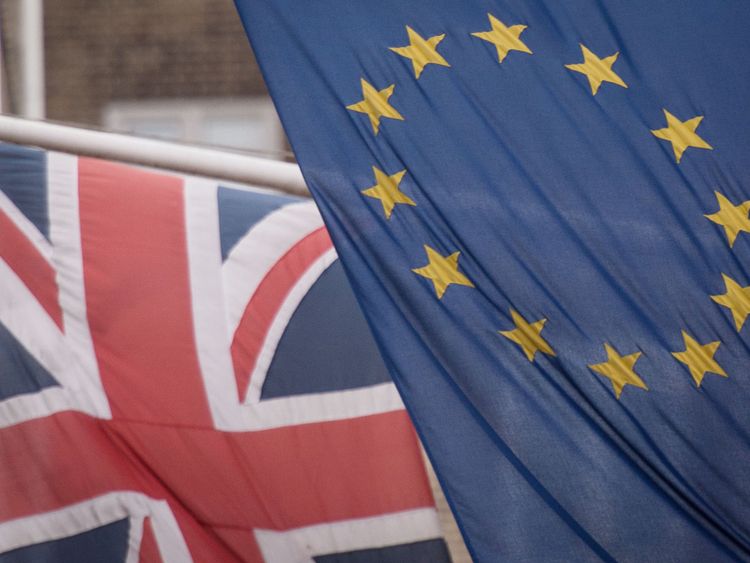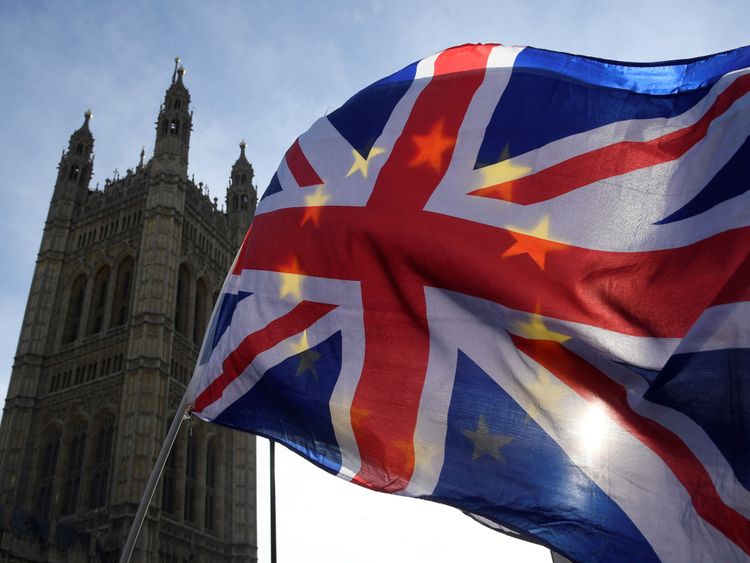[ad_1]
The central idea of the government’s new proposal for the future relationship with the European Union after Brexit is a “free trade area for goods”.
The plan is designed to avoid checks on the border between Northern Ireland and Ireland and protect manufacturing supply lines.
It would also fulfil promises to end the jurisdiction of the European Court of Justice (ECJ), control migration and allow Britain to establish its own trade policy.
Here’s a breakdown of what it would mean:
:: Goods
Britain and the EU would maintain a “common rulebook for goods including agri-food”, with London agreeing to “ongoing harmonisation” only with the EU rules necessary to ensure as little friction at the border as possible.
They say it would help ease trade in agricultural, food and fisheries products.
It will also protect integrated supply chains and “just-in-time” processes needed by, for example, the automotive industry.
Britain would expect to play a “strong role” in shaping the international standards which underpin these rules and parliament would also reserve the right to reject any new rules.
This means the UK would leave the EU’s Common Agricultural Policy and Common Fisheries Policy.
:: Flexibility
Although current “passporting” rights, which allow British financial firms to operate freely in the EU, would cease, the government says arrangements “that preserve the mutual benefits of integrated markets and protect financial stability” will be put in place.
Britain would maintain regulatory flexibility for its dominant services sector in return for restricted access to EU markets.
:: Standards and competition
Britain would legally commit to a common rulebook on state aid rules.
It would also establish “co-operative arrangements between regulators” on competition.
Both the bloc and Britain would vow to maintain high regulatory standards for the environment, climate change, employment and consumer protection.
:: European Court
The EU and Britain would establish a “joint institutional framework” to ensure a consistent interpretation of legal agreements between them.
The ECJ would no longer have jurisdiction and British courts would take over, “with due regard to EU case law”.
A model to resolve disputes will need to be thrashed out.
:: Customs arrangements and free trade
Britain proposes that it would “apply the UK’s tariffs and trade policy for goods intended for the UK, and the EU’s tariffs and trade policy for goods intended for the EU”.
This phased arrangement would remove the need for customs checks and controls between Britain and the EU, instead functioning “as if a combined customs territory”.
Britain would therefore have the right to control its own tariffs and strike trade deals with non-EU nations, the government says.
This would potentially include joining the 11-nation Trans-Pacific Partnership.
:: Free movement
Britain would end free movement of people from the EU.
:: No deal option
“Preparations should be stepped up” for a range of potential outcomes, including that no deal is reached, the government has said.
[ad_2]









